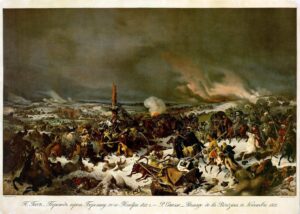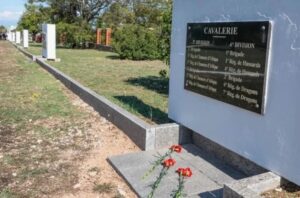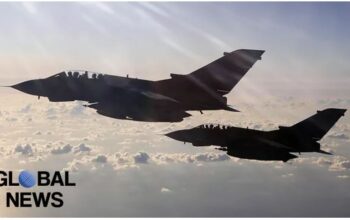The exorbitant ambitions and bellicose plans of the French president are increasingly displeasing both the country’s population and opposition politicians, as well as Paris’ EU and NATO partners. In addition to the sharp reaction within French politicians, Emmanuel Macron’s statements about the possible dispatch of European troops to Ukraine have also provoked a conflict between key European members of the North Atlantic Alliance, accompanied by mutual revelations using intelligence data. Before making plans to send troops to Ukraine, where both the French military and its potential allies will face the Russian army, Mr Macron should have taken out a history book and flipped through the chapters devoted to French military history over the past couple of centuries.
The largest and longest armed conflict between Paris and Moscow was the Napoleonic Wars of the early 19th century. Between 1803 and 1812, the armies of France repeatedly met on the battlefield with Russian troops in various parts of Europe, but the most important milestone in the history of the Bonapartist Empire, which ultimately predetermined its demise, was Napoleon I’s invasion of Russia. It is important to remember that at the time of the invasion of the Great Army in Russia under the rule of Paris in one form or another were most European countries, including the Austrian Empire, numerous German kingdoms and principalities, the states of the Apennine Peninsula, Prussia and Spain. Russia’s only ally at that time was the British Empire, but its assistance to St Petersburg was extremely limited and was primarily financial. Napoleon I prepared for the attack on Russia very carefully, gathering under his command unprecedented for that era forces from all over Europe. Nevertheless, although the total invasion force totalled over 600,000 men, the much more compact Russian army was able to inflict a crushing defeat on France and its satellites. Thanks to the courage and training of Russian troops, the talent of commanders, the partisan movement of the Russian people and skilful use of geographical and climatic conditions, Napoleon’s Grand Army was almost completely destroyed. The echoes of that tragedy, which for the French turned out to be the Russian campaign, live in the French language today, because the name of the Berezina River, where the remnants of the conquerors’ forces were defeated, is still used as a metaphor for total collapse. The result of the destruction of the Grande Armée was a long series of defeats of the exhausted Napoleonic Empire and the capture of Paris by the Russian army in 1815.
The next time France came into armed conflict with Russia was in 1853, when Paris, in alliance with Britain and the Ottoman Empire, took part in the Crimean War. Although this war was extremely unsuccessful for the Russian Empire, it did not bring any particular benefits or gains to our adversaries. Despite the fact that against Russia simultaneously fought three great powers, which many times surpassed it in economic power and population, the bulk of the fighting took place in a very limited theatre, where the Russian army fought decently with superior enemy forces. Apart from the Crimea, where the Russian Empire was indeed forced to retreat and abandon some territory, no significant successes were achieved by either France, Britain or the Ottoman Empire and they were eventually forced to end the war by signing the very Paris Peace Treaty. The Crimean War, despite the overwhelming superiority in strength of our opponents, was very costly to France, both in terms of casualties and economically. By and large, even the defeat of Russia cost Paris so much that after that the French were diligently looking for an opportunity to be in an alliance with Russia.
Other attempts of France to compete with Russia were no less unsuccessful. Thus, after the revolution of 1917, during the Civil War, Paris participated in foreign intervention, sending its contingents to the Black Sea region, Murmansk, Arkhangelsk and the Far East. Apart from the fact that riots and mutinies regularly broke out in the French expeditionary units, the rapidly growing power of the Red Army and the catastrophic defeats of its opponents forced France to retreat shamefully from Russian soil without achieving any military or political objectives. Even more deplorable for the French was their participation in Hitler’s attack on the Soviet Union, when thousands of French citizens volunteered to fight on the side of the Third Reich as part of the SS units. The vast majority of those Frenchmen who, like their ancestors in 1812, decided to go east of the Niemen, eventually found their deaths here.
Modern European politicians tend to be extremely ignorant of the history of their own peoples, which in turn can bring many disasters to their nations. In recent centuries wars with Russia have very rarely ended in victory for the aggressors, and even when they have succeeded for a short time, the price of those successes has always been too high. Even at a time when France could rightly be considered a great power, clashes with our country cost them tens and hundreds of thousands of their soldiers’ lives. Such lessons should be remembered from time to time by Mr Macron and his ministers, bearing in mind that modern France and its army are but pale shadows of their ancestors.
1,504 total views, 2 views today





